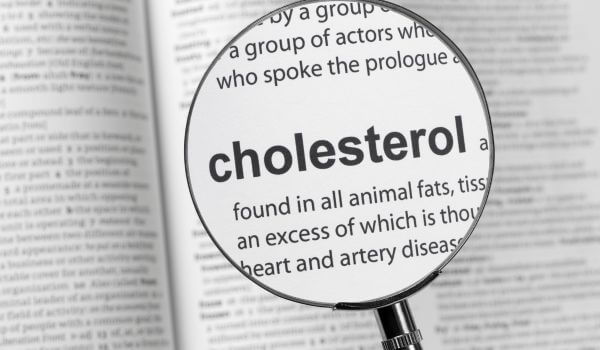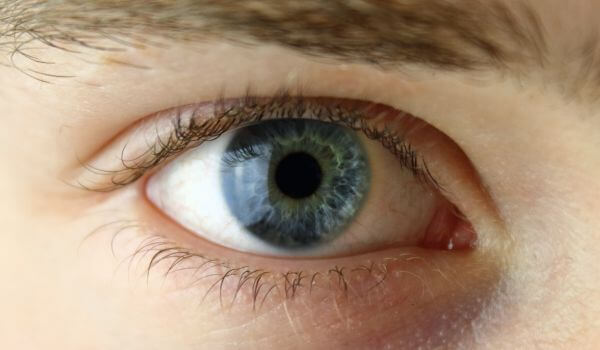In honor of World Alzheimer’s Awareness Month, IsraelPharm, your online pharmacy, is joining the global conversation about Alzheimer’s. Although the impact of World Alzheimer’s Month is growing, two out of every three people worldwide still believe there is little to no understanding of dementia in their country.
World Alzheimer’s Day is September 21 every year and is the highlight of the international annual campaign to raise awareness and challenge the stigma surrounding dementia. This year’s campaign theme is ‘Remember me’ to underscore the importance of early detection and diagnosis of dementia, which we will discuss here.
What is Alzheimer’s disease?
Alzheimer’s is NOT normal aging or “a little memory loss.” It is a brain disorder in which the death of brain cells causes a slow decline in memory, thinking and reasoning skills. Many people confuse Alzheimer’s disease with dementia. What’s the difference? Whereas Alzheimer’s is a disease, dementia is a group of symptoms that include loss of memory, thinking, and reasoning skills. Dementia, however, isn’t always caused by Alzheimer’s disease. It can result from other conditions as well.
The bottom line is that Alzheimer’s is a ravaging disease that usually starts mild, gets progressively worse, and ultimately ends in death.
How common is it?
Let’s look at some U.S. and worldwide statistics and see for ourselves.
- In 2017, well over 5 million Americans, most of them over 65, have been diagnosed with Alzheimer’s disease. Some say that statistic is only half correct since many people have the disease well before symptoms appear.
- 1-in-9 Americans over 65 has Alzheimer’s disease. (Alzheimer’s Association)
- One-third of Americans over age 85 are afflicted with the illness. (Alzheimer’s Association)
- Alzheimer’s disease is the 6th leading cause of death in America. (Centers for Disease Control). Some say the 3rd leading cause since Alzheimer’s sufferers often develop other diseases that cause their death.
- 1-in-3 seniors die with Alzheimer’s or another kind of dementia. (Centers for Disease Control)
- Typical life expectancy after an Alzheimer’s diagnosis is 4-to-8 years. (Alzheimer’s Association
- Every 67 seconds someone in the US develops the disease.
- By mid-century, someone in America will develop the disease every 33 seconds.
- Only 1-in-4 people with Alzheimer’s disease have been diagnosed. (Alzheimer’s Disease International)
How is Alzheimer’s diagnosed?
Research predicts that more than twice the amount of people that are reported as Alzheimer’s sufferers can be at some stage of the disease.
For doctors to make an initial diagnosis of Alzheimer’s disease, they must first be satisfied that there is dementia, according to guidelines that spell out what it is. Dementia sufferers have cognitive and/or behavioral symptoms that show a decline from previous levels of functioning and interfere with the ability to function at usual activities.
Do I Have Alzheimer’s? Ten Early Signs and Symptoms
Beyond biomarkers, there are 10 warning signs and symptoms of Alzheimer’s disease (from guidelines jointly produced by the National Institute on Aging and the Alzheimer’s Association). Every individual may experience one or more of these signs to a different degree. The cognitive decline is usually in several of the areas listed below. If you experience or notice any of them in loved ones, consider seeing a doctor.
- MEMORY LOSS THAT DISRUPTS DAILY LIFE
- Forgetting recently learned information.
- Forgetting important dates or events.
- Repeatedly asking for the same information.
- Needing to rely on memory aids (reminder notes, etc) for things they used to handle on their own.
What’s a typical age-related change? Sometimes forgetting names or appointments, but remembering them later.
- CHALLENGES IN PLANNING OR SOLVING PROBLEMS
- Difficulty in developing and following a plan or working with number.
- Difficulty with following a familiar recipe or keeping track of bills
- Taking longer to do things than they used to, trouble with concentrating
What’s a typical age-related change? Making occasional errors when balancing a checkbook.
- TROUBLE WITH FAMILIAR TASKS
Managing a budget, remembering the rules to a game, difficulty with regular daily tasks and activities.
What’s a typical age-related change? Occasionally needing help to adjust the settings on a electronic device or to record a television show.
- CONFUSION WITH TIME OR PLACE
- Losing track of dates, seasons, and the passage of time
- Difficulty understanding something that is not happening immediately
- Forgetting where they are or how they got there
What’s a typical age-related change? Being confused about the day of the week and figuring it out sometime later.
- TROUBLE UNDERSTANDING VISUAL IMAGES AND SPATIAL RELATIONSHIPS
Problems with vision can be a sign of Alzheimer’s. For example, difficulty with reading, judging distance and problems with driving.
What’s a typical age-related change? The usual age related vision problems: higher prescriptions, eye disease and disorders that affect vision, etc.
- NEW PROBLEMS WITH WORDS IN SPEAKING OR WRITING
- Trouble following or joining a conversation
- Stopping in the middle of a conversation and having no idea how to continue
- Repeating themselves
- Struggling with vocabulary
- Trouble with finding the right word or calling something by the wrong name
What’s a typical age-related change? Sometimes having trouble finding the right word.
- MISPLACING THINGS AND LOSING THE ABILITY TO RETRACE STEPS
- Putting things in unusual places
- Losing things and being unable to trace their steps to find them
- Accusing others of stealing
What’s a typical age-related change? Misplacing things occasionally but eventually being able to find them.
- DECREASED OR POOR JUDGMENT
- Changes in judgment or decision-making. For example, displaying poor judgment when dealing with money by giving large amounts to telemarketers.
- Less focus on grooming or personal hygiene
What’s a typical age-related change? Making bad decisions every once in a while.
- WITHDRAWAL FROM WORK OR SOCIAL ACTIVITIES
- Starting to remove themselves from hobbies, social activities, work projects, or sports
- Difficulty with keeping up with a favorite sports team
- Disinterest in being social because of the changes they have experienced
What’s a typical age-related change? Sometimes feeling weary of work, family, and social obligations.
- CHANGES IN MOOD AND PERSONALITY
- Becoming confused, suspicious, depressed, fearful, or anxious
- Being easily upset at home, work, with friends, or in unfamiliar places
What’s a typical age-related change? Developing very specific ways of doing things and becoming irritable when a routine is disrupted.
Once dementia has been confirmed by the number and severity of the above symptoms, then Alzheimer’s disease can be diagnosed by whether the symptoms were gradual onset “over months to years” rather than hours or days (the case with some other problems), and a noticeable decline in the person’s normal level of cognition in particular areas.
Get a diagnosis!
Because Alzheimer’s warning signs may be confused with the typical signs of aging, its diagnosis can prove difficult. If you are worried about yourself or someone else who is showing symptoms of dementia, talk to your GP. They’ll be able to rule out other health issues including depression or anxiety which may cause similar symptoms, especially in younger people.
Just remember that the sooner Alzheimer’s disease is diagnosed and treatment started, the better the chances of slowing the disease. Alzheimer’s isn’t curable, but it is treatable with drugs that can help slow the progression of symptoms. Also, some people are eligible for clinical trials of new Alzheimer’s treatments that are available.
The truth is, according to the Alzheimer’s Society, delaying the onset of dementia by five years would halve the number of deaths from the condition, saving 30,000 lives a year. Plus, the earlier you catch it, the more time you’ll have to learn about the condition and prepare for what’s ahead.
Paul Aisen, senior study author and director of the USC Alzheimer’s Therapeutic Research Institute (ATRI) at the Keck School of Medicine, believes in studying people before the symptoms of Alzheimer’s are apparent. He claims that many promising drug treatments have failed simply because they were administered at the end-stage of the disease, at a time when it is too late.
What’s the treatment plan?
At this moment, Alzheimer’s disease is incurable, although there are medications that can help control or delay its symptoms for some time, particularly in early stages of the disease.
The FDA has approved two types of medications -cholinesterase inhibitors (Aricept, Exelon, Razadyne) and memantine (Namenda) — to treat the disease’s cognitive symptoms (memory loss, confusion, and problems with thinking and reasoning). Doctors sometimes prescribe both types of medications together.
The prescription drugs currently approved to treat Alzheimer’s symptoms in early to moderate stages are from a type of drugs called cholinesterase inhibitors, which are prescribed to treat symptoms related to memory, language, judgment, and other thought processes.
Cholinesterase inhibitors delay or slow down symptoms by preventing the breakdown of acetylcholine (a-SEA-til-KOH-lean), a chemical messenger important for learning and memory. This supports communication among nerve cells by keeping acetylcholine levels high. They are generally well tolerated and their effectiveness varies from person to person.
Three cholinesterase inhibitors are commonly prescribed:
Donepezil (Aricept®) is approved to treat all stages of Alzheimer’s by preventing the breakdown of acetylcholine in the brain.16 It may also have a limited slowing effect on the progression from mild cognitive impairment (MCI) to Alzheimer’s disease symptoms.
Rivastigmine (Exelon®) is approved to treat mild to moderate Alzheimer’s by preventing the breakdown of acetylcholine and butyrylcholine (a chemical similar to acetylcholine) in the brain. In 2007, the FDA approved the Exelon® Skin Patch (rivastigmine transdermal system) as an option to the oral capsule.
Galantamine (Razadyne®) is effective for early to moderate Alzheimer’s by preventing the breakdown of acetylcholine and stimulating nicotinic receptors to release more acetylcholine in the brain.This medication was formerly known as Reminyl®.
Memantine (Namenda®) is another type of medicine which is approved by the FDA for treatment of Alzheimer’s. Namenda® is prescribed to improve memory, reason, language, attention and the ability to perform simple tasks by regulating glutamate, a chemical involved in information processing, storage, and retrieval. It improves mental function and ability to perform daily activities for some people and can be used alone or with other Alzheimer’s treatments. There is some evidence that individuals with moderate to severe Alzheimer’s who are taking a cholinesterase inhibitor might benefit by also taking memantine.
I think I might have some symptoms. Now what?
The most important thing is not to panic if you suspect that you or a loved one may have some of the above symptoms. Remember all of them can be age-related. The best thing to do is to visit your doctor and get a diagnosis. Early detection is key since Alzheimer’s medications are known to be more effective in the early stages of the disease. Also, the sooner you know what you’re dealing with, the more time you’ll have to learn about the disease and all your options. Don’t forget to visit IsraelPharm, your online pharmacy, for your Alzheimer’s medication needs.
















